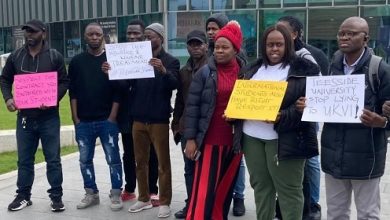Urgent! Water sources must be saved
Abtvgh / Ghana water

Have you drunk water today?
If you do not drink water, your itchy throat will compel you to do so you will naturally feel thirsty.
Water is life and no human or living being can do without it; meaning that on the day the last drop of water on earth is used up, the last human being will cease to exist.
Everyone knows this cardinal truth, but, unfortunately, few go all out to protect water, which is one of the key resources that keep the human race alive.
Through illegal unsustainable mining, farming along river banks, the destruction of vegetation and other practices inimical to the preservation of our water sources, all the major freshwater sources in the country rivers Tain, Ankobra, Pra, Birim, Oti, Offin, Tano, Densu, Afram, Nini, Todzie, Bia, Pru, Black and White Volta, among others have been heavily polluted or silted.
The Ghana Water Company Limited (GWCL) had had to, over the past few years, heavily treat the little water left for the water stations, thereby incurring more cost, in view of the extent of pollution, before they can send the water to consumers.
In fact, the situation has become so dire that the GWCL has warned a number of times that it will shut down operations in areas affected by illegal mining (galamsey) if the cost of treating water becomes economically unsustainable due to very high turbidity levels.
Although the government has persisted in clearing our water bodies of illegal miners, they continue to outwit the task force and continue to pollute our water sources.
Ghana is not the only country having challenges with ensuring access to potable water due to man’s activities and climate change. There are two billion people who do not have access to water globally.
It is the reason the United Nations (UN), in 1993, instituted the World Water Day (WWD) which is marked globally on March 22, every year.
The day, which was observed yesterday, highlights the importance of fresh water and is also used to advocate the sustainable management of freshwater resources.
It is about taking action to tackle the global water crisis, in support of Sustainable Development Goal Six (SDG 6): Water and sanitation for all by 2030.
The focus for this year’s commemoration was on accelerating change from the business-as-usual approach to solve the water and sanitation crisis the world over.
Because water affects all of us, we need everyone to take action now. Everyone can make a difference by changing the way we use, consume and manage water and by resisting the pollution of our water bodies by people for greedy gain.
Dysfunction throughout the water cycle undermines progress on all major global issues, from health to hunger, gender equality to jobs, education to industry and disasters to peace.
In 2015, the world committed to SDG 6 as part of the 2030 Agenda – the promise that everyone will have safely managed water and sanitation by 2030.
Right now, the world is seriously off-track, as billions of people and countless schools, businesses, healthcare centres, farms and factories are being held back because their human right to water and sanitation still needs to be fulfilled.
There is an urgent need to accelerate change – to go beyond ‘business as usual’.
The latest data show that governments must work, on the average, four times faster to meet SDG 6 on time, but this is not a situation that any single actor or group can solve.
The commemoration of this year’s WWD coincided with the start of the UN 2023 Water Conference (March 22-24, New York), a once-in-a-generation opportunity to unite the world around solving the water and sanitation crisis once and for all.
Indeed, as stated by the Director-General of UNESCO, Audrey Azoulay, on the occasion of this year’s WWD: “Not only is water the source of all life; it is also the foundation for the health and development of our societies.”
“How can we learn well, how can we be in good health, how can we build a world of peace and justice in a world that is thirsty or that makes itself sick by drinking water that is unfit for consumption?” she quizzed.
It is, therefore, crucial to act to ensure access to water and sanitation for all and this is all the more pressing as the consequences of climate change are already being felt and threaten to aggravate droughts and water shortages, as well as the scale and frequency of floods.



